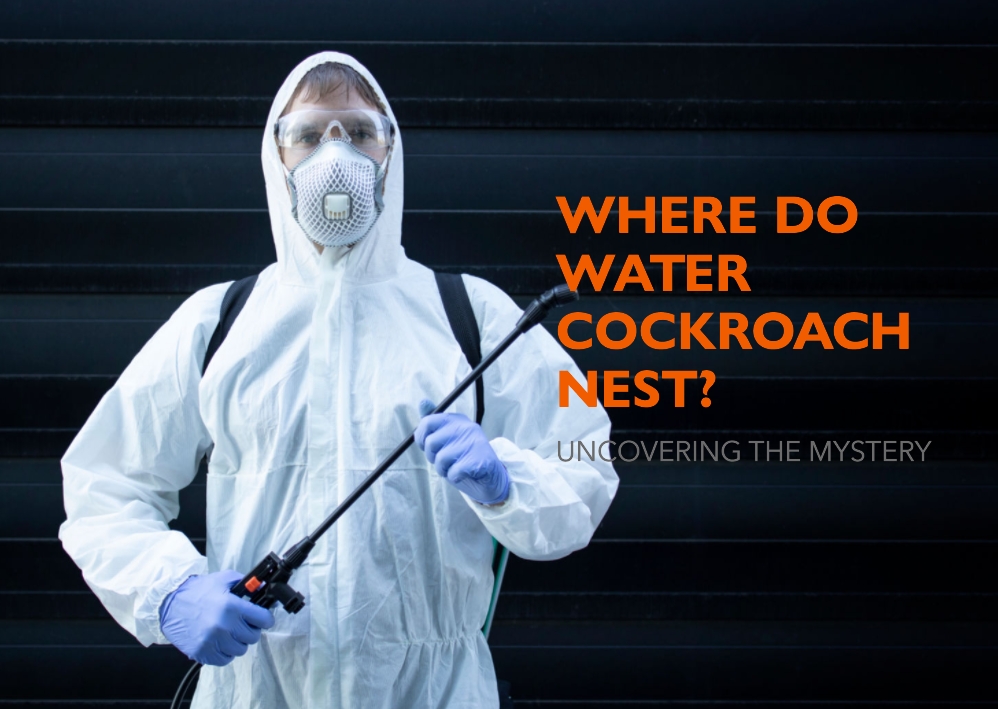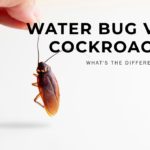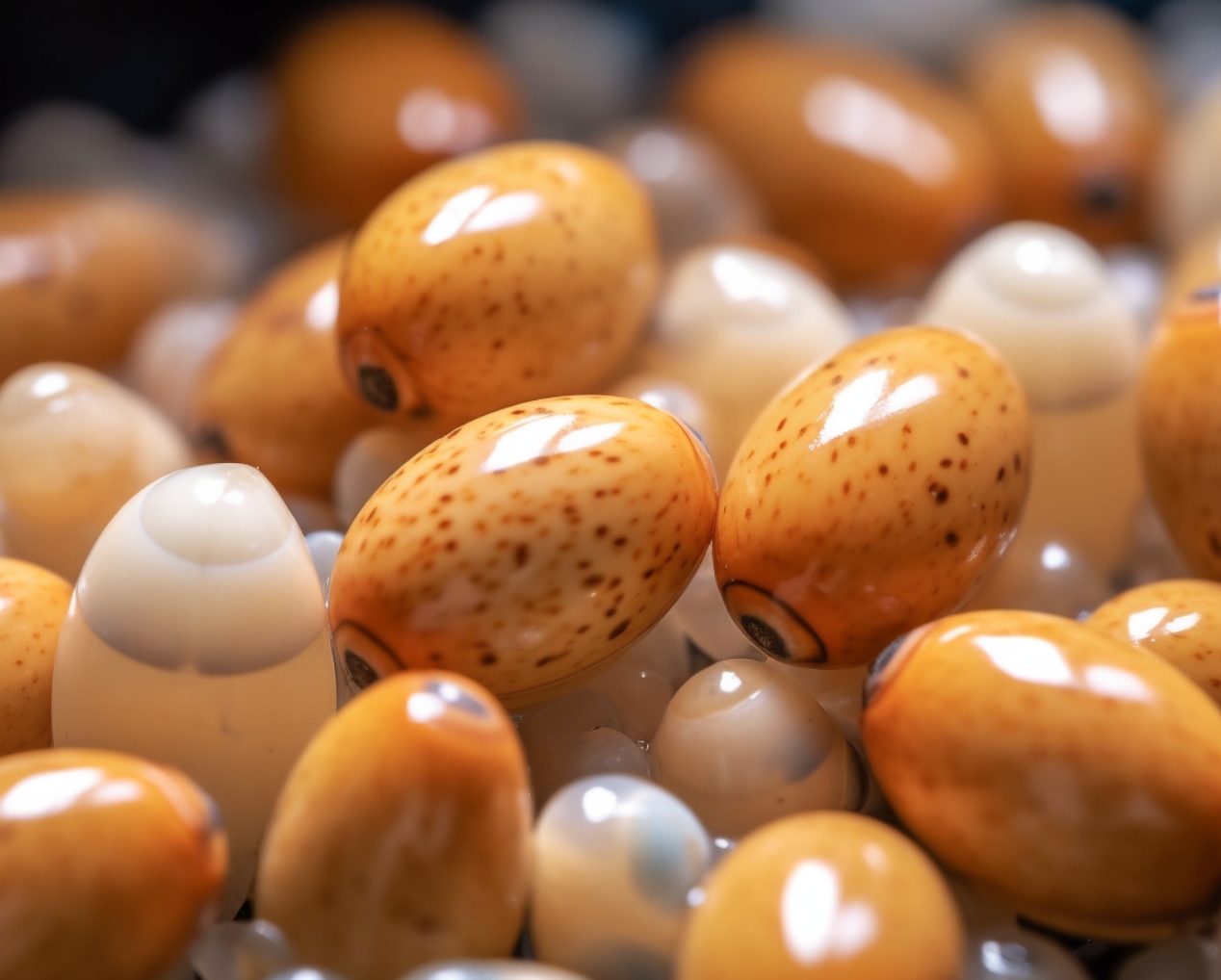What Are Water Roaches?
Contents
Water roaches might sound like creatures from a horror movie, but they’re actually just another name for the common pest: the American Cockroach. These large, reddish-brown insects are known for their affinity for damp, humid environments, which is why they’re often found near water sources like drains, sewers, and leaky pipes. In this comprehensive guide, we’ll walk you through everything you need to know about water roaches, from identification to prevention and control.
Identifying Water Roaches
Water roaches are one of the largest cockroach species, measuring up to 2 inches in length. They have a shiny, reddish-brown color and are equipped with wings, which they can use for short bursts of flight. Here’s a quick comparison between water roaches and other cockroach species.
Where Do Water Roaches Nest?
As we mentioned earlier, water roaches love damp and humid environments. They’re commonly found in sewers, basements, crawl spaces, and other areas with high moisture levels. Check out this detailed guide on where water roaches nest to learn more about their preferred hiding spots.
The Life Cycle of a Water Roach
The life cycle of a water roach begins with an egg. Female water roaches produce egg cases called oothecae, which contain around 14-16 eggs each. These egg cases are then deposited in hidden, protected areas. After hatching, the nymphs will go through several stages of development before becoming fully-grown adults. Learn more about cockroach eggs and what to do with them here.
Do Water Roaches Pose Health Risks?
While water roaches aren’t known to bite or sting humans, they can still pose health risks. They’re known to carry various pathogens, which can be spread through contact with contaminated surfaces or food. Additionally, water roaches can trigger allergies and asthma in some individuals, making them a pest you definitely don’t want in your home.
Controlling Water Roaches
There are several methods you can use to control water roaches, from natural remedies to professional extermination. Some popular methods include:
- Diatomaceous Earth: This natural powder can be sprinkled around entry points and known nesting areas to kill roaches. Learn more about using diatomaceous earth for roaches here.
- Boric Acid: Another natural option, boric acid can be mixed with peanut butter or other bait to create a lethal trap for roaches. Check out this guide on boric acid and peanut butter bait for roaches.
- Roach Bait Gel: Commercial roach bait gels like Advion Cockroach Gel Bait can be applied in small amounts to areas where roaches are active.
- Roach Traps: Sticky roach traps can be used to capture roaches and monitor their activity levels.
- Insecticides: If you prefer a more aggressive approach, you can use chemical insecticides like roach spray or roach bombs to eliminate water roaches. Be sure to follow the manufacturer’s instructions carefully and keep pets and children away from treated areas.
- Professional Extermination: In severe infestations, it may be necessary to hire a professional exterminator. Learn more about how to hire a roach exterminator and what to expect during the process.
Preventing Water Roaches
Prevention is always better than cure, so it’s essential to take steps to keep water roaches out of your home. Here are some effective strategies for water roach prevention:
- Eliminate Moisture: Since water roaches love damp environments, addressing any moisture issues in your home is crucial. Fix leaky pipes, use a dehumidifier in humid areas, and ensure proper ventilation in basements and crawl spaces.
- Seal Entry Points: Inspect your home’s exterior for any cracks or gaps that could allow water roaches to enter. Seal these with caulk or other appropriate materials.
- Keep Your Home Clean: Regularly clean your home, paying special attention to the kitchen and bathroom. Don’t leave food out, and store it in sealed containers. Promptly clean up any spills or crumbs to avoid attracting water roaches.
- Declutter: Water roaches love to hide in cluttered spaces, so keeping your home tidy and organized can help deter them.
- Natural Repellents: Some essential oils, like peppermint oil, have been known to repel roaches. You can use these natural repellents in areas where water roaches are likely to enter your home.
Are There Other Roach Species I Should Be Aware Of?
While water roaches are a common pest, there are several other cockroach species you might encounter. Some of these include:
- German Cockroach: A small, light brown species known for being particularly difficult to eradicate. Learn more about German cockroaches and how to get rid of them overnight.
- Oriental Cockroach: A large, dark brown species that also prefers damp environments. Find out more about Oriental cockroaches here.
- Brown-Banded Cockroach: A small, light brown species with distinctive bands across its wings. Discover more about brown-banded cockroaches in this article.
FAQ About Water Roaches
Q: What is the difference between water roaches and water bugs?
A: Water roaches are simply a nickname for American cockroaches, which are a species of cockroach that prefer damp environments. Water bugs, on the other hand, are a general term for aquatic insects, such as the giant water bug or the water boatman. While water roaches and water bugs may share similar habitats, they are not the same. Check out this comparison between water bugs and cockroaches for more information.
Q: Do water roaches fly?
A: Yes, water roaches are equipped with wings and can fly. However, they are not strong fliers and typically only use their wings for short bursts or to glide from high places to the ground. Learn more about flying cockroaches here.
Q: Can water roaches bite?
A: Although water roaches have the physical capability to bite, they generally do not bite humans. They are more likely to scavenge for food and prefer to avoid direct contact with people. Check out this article to learn more about whether cockroaches bite.
Q: How can I tell if I have a water roach infestation?
A: Some signs of a water roach infestation include:
- Seeing live or dead roaches in your home
- Finding roach droppings, which resemble coffee grounds or pepper
- Discovering egg cases (oothecae) in hidden areas
- Noticing an unpleasant, musty odor in the infested area
For more information on detecting a roach infestation, visit this guide on how many roaches constitute an infestation.
Q: How long does it take to get rid of water roaches?
A: The time it takes to get rid of water roaches can vary depending on the severity of the infestation and the methods used to control it. In some cases, it may take only a few days to see significant improvements, while in others, it may take several weeks or even months. Consistent and thorough treatment, as well as implementing preventative measures, is key to successfully eliminating water roaches.
Q: Are there any home remedies for getting rid of water roaches?
A: Yes, there are several home remedies that can be used to help control water roach infestations. Some popular options include:
- Diatomaceous earth
- Boric acid and peanut butter bait
- Natural repellents, like peppermint oil
- Baking soda and sugar bait
For more information on these and other home remedies, check out this article on home remedies for roaches.




